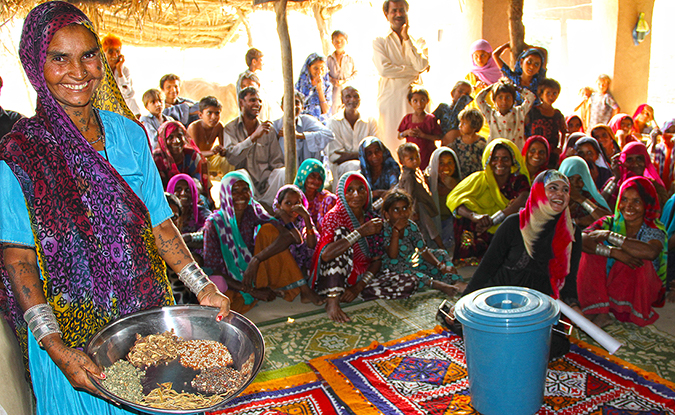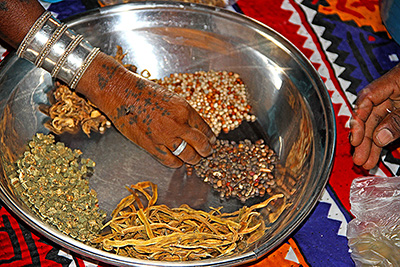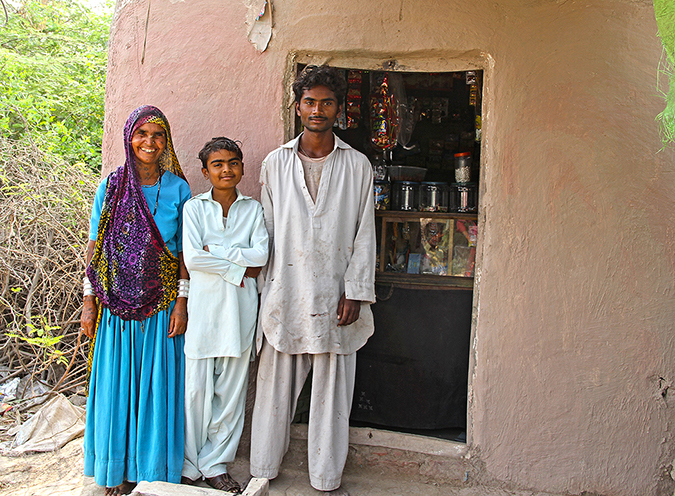Women Learn to Preserve Foods as a Means to End Hunger
Date:
Author: Faria Salman
Sindh, Pakistan – Almost five years ago and nearly every year since, the Districts of Dadu and Mirpur Khas in Sindh Province have been affected with devastating floods caused by heavy rains, exposing local communities and villages to face hunger, destruction and displacement. In cases of shortfall of rain, these people again experience hunger and displacement.

“Due to the heavy floods we were never able to harvest much and we were always left hungry and without food. The flood water level would not go down and the aid would take forever to come to us. An urgent need of our community during these times was shelter, a place to live, and food for times in need,” shared 38-year old Champa, a peasant woman from Mirpur Khas.
In providing Champa, her family and community with an opportunity to become food secure during natural calamities in the future, UN Women in collaboration with the Strengthening Participatory Organization, a local partner, provided hands-on training on new methods and techniques in food and farming preservation.

Women, girls, men and boys were provided with locally grown and available vegetables (such as lady fingers, green beans, peas, mushrooms, cluster beans, bitter gourd and apple gourds), pulses and spices, and knives, cutters, water, chemicals and crockery. They were taught the process of cutting, boiling, chemical mixing and drying in a manner that their produces could be stored and used for up to five years. They were also taught how to package and store their dried vegetables, pulses and spices.
Through this initiative, over 970 local farmers, of which 807 are women, from 40 local villages have benefitted from adopting alternative food preservation methods.
Speaking of the training received Champa said, “the training has been very beneficial for us and our community. We have learned a new way of food preservation and storage. We are applying the skills learned and have food available for a rainy day. When we have more than enough food stored we sell it in our village shop to earn some extra money to buy seeds.”

This initiative of UN Women, FAO and ILO under the UN Trust Fund for Human Security titled, “Livelihood restoration, protection and sustainable empowerment of vulnerable peasant communities in Sindh province”, will have a significant impact on food security and benefit the villages during times of natural disasters and weather challenges.
About the author
Faria Salman is Strategic Management and Partnerships Officer, UN Women Pakistan. She can be contacted via email at: [ Click to reveal ]